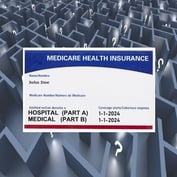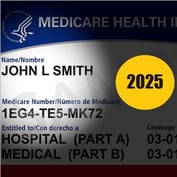The prognosis for health savings accounts, the tax-free money used in conjunction with high deductible health insurance, is rosy, according to recent studies, but is there a place for them in the retirement planning world? It depends on who ends up getting the largest share of the market, and how HSAs are used and accumulated, according to financial advisors and analyst groups.
Boston-based Financial Research Corp. projects that HSAs could grow to 8.2 million accounts and estimates that HSAs currently hold $1.1 billion in assets through banks and insurers, a number that is projected to grow to $2 billion by year-end, and reach $48 billion by 2010. Some even argue that projection is too conservative.
For the investment advisory industry, HSAs are “a little blip right now and that’s because there’s not a lot of money in them just yet because of their newness,” says Brad Rosley, a CFP with Fortune Financial Group in Glen Ellyn, Illinois. However, he anticipates an ” absolutely massive appeal” for the product, and has set up an HSA for his own family and some of his clients.
But there needs to be some incentive for advisors, he argues. Some banks charge account fees, and an advisor can do the same for a company with, say, 50 employees, but most advisors “will not take serious interest in [HSAs] until there’s money to be made, until the account balances are larger,” Rosley says.
Lynette Dewitt, a senior research analyst at FRC, says advisors “need to thoroughly understand how the high deductible health plan and health savings account products work, and recommend the best products to the clients that benefit most from them.” She says, “Advisors, especially those managing fee-based accounts, will benefit from the additional product sales through their clients’ investment in health savings accounts.”
Dan Perrin, president of The HSA Coalition in Washington, notes that banks have a head start, having set up most accounts. Insurers and third-party administrators follow in the number two and three spot, with mutual fund companies like Vanguard, Charles Schwab and T. Rowe Price just now getting into the business because they’ve decided the HSA market is going to be around for a while, Perrin says.








 July 28, 2005 at 08:00 PM
July 28, 2005 at 08:00 PM










